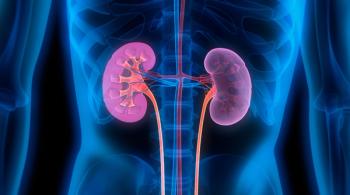
In a unanimous ruling, the Supreme Court rejected a challenge by antiabortion doctors, maintaining nationwide access to mifepristone for medication abortions and reversing a lower court's decision to restrict the pill's availability.

In a unanimous ruling, the Supreme Court rejected a challenge by antiabortion doctors, maintaining nationwide access to mifepristone for medication abortions and reversing a lower court's decision to restrict the pill's availability.

Recent changes in Medicaid billing policies allowing separate reimbursement for long-acting reversible contraceptives have increased their use immediately postpartum, based on data from a recent study.

A recent study reveals that non-Hispanic White women living in deprived neighborhoods face higher breast cancer mortality, highlighting the impact of social determinants on health outcomes.

The ACCESS Consensus Group's new guidelines aim to enhance cervical cancer screening and reduce mortality rates in high-income countries, emphasizing the urgent need for increased participation and innovative approaches such as self-sampling.

Abbott's Lingo and Libre Rio CGM devices, designed for general health and Type 2 diabetes management respectively, receive FDA approval, offering advanced metabolic health tracking for US consumers.

A recent study found wide disparities in iron deficiency rates among women, influenced by different diagnostic definitions, regardless of race, ethnicity, pregnancy, or age.

A recent study reveals that female Medicare beneficiaries face a significant increase in mortality disparity compared to male beneficiaries, particularly at lower-quality hospitals, underscoring the need for equitable access to high-quality care.

A recent study reveals a significant increase in hypertensive disorders among pregnant individuals in the United States from 2010 to 2021, highlighting the need for focused public health measures to mitigate modifiable risk factors.

A recent study concludes that antibiotic use during pregnancy or infancy is not associated with increased risks of autism spectrum disorder, intellectual disorder, or language disorder, though a slight increase in epilepsy risk was observed.

Risa Kagan, MD, discusses the efficacy of fezolinetant in reducing the frequency and severity of vasomotor symptoms in menopausal women, offering an alternative to traditional hormonal therapies.

Review some of the top stories from the Contemporary OB/GYN website over the last week, and catch up on anything you may have missed.

A recent study highlights a 35% reduction in severe maternal morbidity risk with epidural analgesia during labor, with even greater benefits for women with specific risk factors.

Research revealed that group multimodal prenatal care offers improved or equivalent postpartum outcomes compared to individual care, particularly in managing perceived stress and sleep duration.

A recent study reveals that heat waves significantly elevate the rates of preterm and early-term births, highlighting a critical public health issue.

A recent study reveals significant correlations between placental and cord serum metabolism at delivery, influencing neurodevelopmental outcomes in children with a high familial risk of autism spectrum disorder.

Following evidence from recent studies, the Centers for Disease Control and Prevention has recommended the use of doxycycline postexposure prophylaxis in sexual health among certain populations.

A recent study reported an increased risk of mortality when diagnosed with premenstrual disorders at an early age, as well as overall increased suicide risk.

A study revealed that the Dobbs v Jackson Women’s Health Organization decision has led to more out-of-state abortions and longer gestation periods in states such as Washington with legalized abortion.

USPSTF now advises biennial breast cancer screening from age 40 to 74 years based on an evolving evidence base.

Review some of the top stories from the Contemporary OB/GYN website over the last week, and catch up on anything you may have missed.

Wanda Barfield, MD, MPH, highlights significant racial disparities in maternal mortality and emphasizes the importance of collaborative efforts and data-driven approaches to improve maternal health outcomes in the United States.

New research reveals that acute increases in physical activity and ambient temperature can elevate the risk of both objective and subjective hot flashes in postmenopausal women.

A comprehensive study highlighted that pregnant women with COVID-19 have a lower incidence of post-acute sequelae compared to non-pregnant women, emphasizing the need for tailored clinical care.

A study found a significant decline in mental health therapy sessions among US military parents during the months surrounding childbirth, highlighting the need for more accessible treatment options.

Recent research reveals a correlation between preeclampsia and heightened risk of young-onset dementia, shedding light on potential long-term consequences of this pregnancy complication.

A recent study investigated the effects of antenatal tocolysis on neurodevelopmental outcomes among children aged 5.5 years following preterm prelabor rupture of membranes, revealing no significant differences in outcomes.

A recent study found that obese patients undergoing induction of labor experienced similar delivery times regardless of whether they received 50 μg or 25 μg of vaginal misoprostol, though multiparous patients showed faster delivery with the higher dosage.

New research reveals that while nearly 1 in 5 sexual and gender minority youths experience changes in gender identity, these changes do not correlate with increased depressive symptoms.

A recent study highlighted the significant association between adverse pregnancy outcomes and an elevated long-term risk of chronic kidney disease, emphasizing the need for heightened awareness and monitoring.

A recent study highlights the necessity of optimizing secondary prevention strategies to mitigate adverse cardiovascular outcomes in patients with HIV who face higher risks.